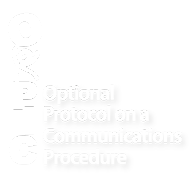On June 9, 2021, during the 89th pre-session of the Committee, more than 50 States met online with the UN Committee on the Rights of the Child to celebrate the 2021 Annual informal exchange on the Optional Protocol on a Communications Procedure (OPIC).
Bearing in mind the relevance and success of the 2019 informal dialogue between States and the Committee, the Permanent Missions of the Federal Republic of Germany and the Republic of Slovenia, as co-chairs of the Group of Friends on the Rights of the Child and in partnership with the UN Committee on the Rights of the Child, the Office of the United Nations High Commissioner for Human Rights (OHCHR) and Child Rights Connect organised this second annual dialogue giving a new and strong impetus to OPIC-related and access to justice discussions at the UN level.
Built on the understanding that the OPIC is a unique tool to better fulfil child rights at the national level and strengthen the implementation of the UN Convention on the Rights of the Child, this event was a platform for exchange and collaboration between States and the Committee. Indeed, it created and provided a space where challenges and opportunities related to the OPIC were openly discussed.
Welcoming the two recent ratifications of the OPIC in 2021 by Armenia and Seychelles, Committee members first shared with the nearly 100 participants the latest trends on the OPIC, including the status of ratifications, the existing gap between ratification and implementation, different jurisprudence highlights, new developments – such as the recently adopted and revised Working Methods on the OPIC – and some examples of successful stories and cases.
Later, participants had the chance to raise questions and/or concerns in relation to the OPIC directly to Committee members and to exchange and learn from other national ratification and implementation experiences. Some of the many questions that arose centered on the added value of the instrument, its linkage to the strengthening of national justice systems, real or perceived legal barriers to ratification, the exhaustion of domestic remedies, consistency in decisions dealing with the same or similar issues or regional imbalances.
Some States also shared examples of what can be achieved if the Protocol is effectively used and implemented at the national level. Spain, for instance, highlighted that the new national legislation aimed at protecting children and adolescents from violence (Ley Orgánica de Protección Integral a la Infancia y Adolescencia frente a la Violencia) has included some of the recommendations formulated by the Committee in its landmark decision R.Y.S. v. Spain.
At Child Rights Connect we highly welcome and strongly support the organisation of these annual exchanges as part of the ongoing work of collaboration between the Committee and States, as we think they are absolutely crucial for generating a better understanding of the instrument and its added value and advancing towards the universal ratification of the OPIC, its effective use and implementation.
This event was also an important opportunity for Child Rights Connect to update State representatives and Permanent Missions on our work and present our newest tool, the Ratification Toolkit (2020), which aims to explain the importance of ratifying the OPIC and provide concrete information, strategies and arguments that can be used to advocate for the ratification of the OPIC.
For more information on the resources Child Rights Connect can provide to support States’ efforts to ratify and more effectively implement and use the OPIC, please see:
- Our OPIC Info Pack (2020)
- You can also reach out to us for targeted technical assistance and support at legal@childrightsconnect.org

